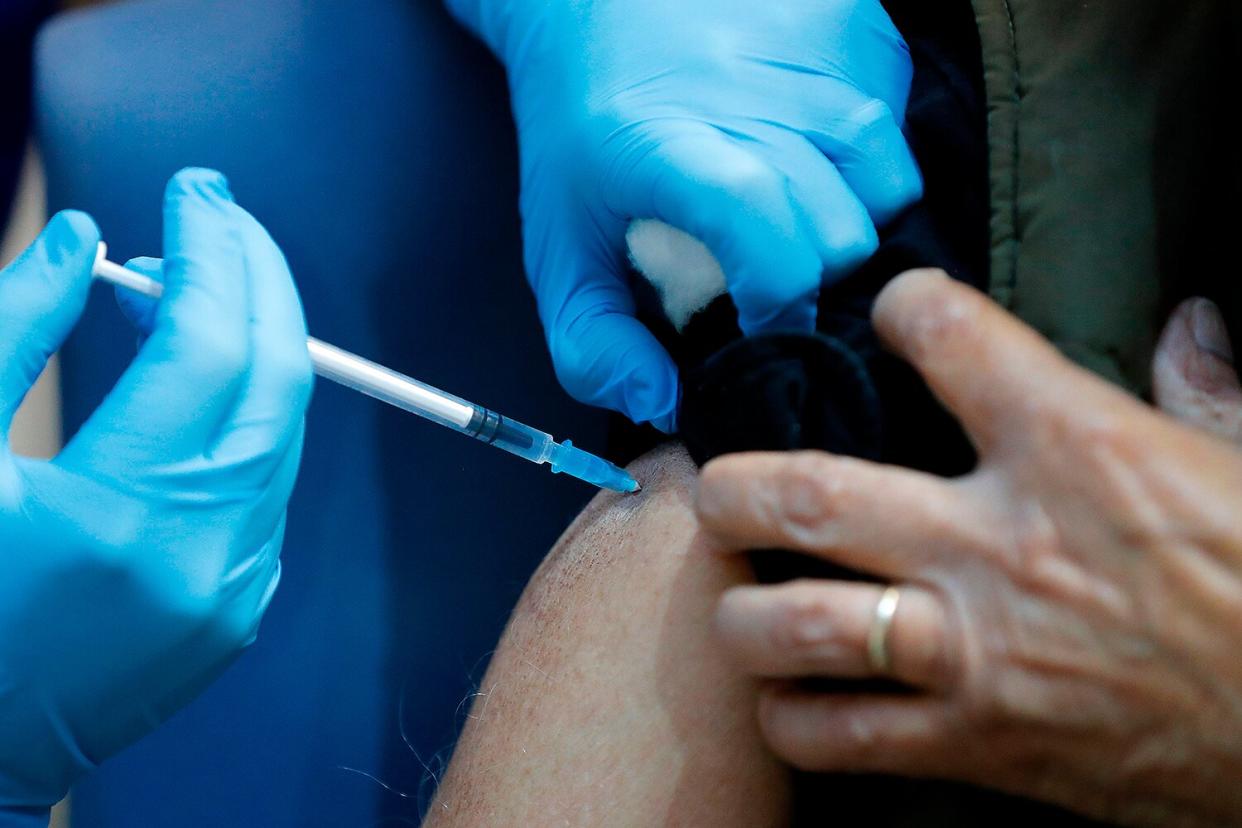More Than 5 Million People — About 8% — Missed Their Second COVID Vaccine Shot, CDC Says

FRANK AUGSTEIN/POOL/AFP via Getty A woman receiving a COVID-19 vaccine
A rising number of Americans have missed their appointment for their second COVID-19 vaccine dose, according to data from the Centers for Disease Control.
Around 8% of people, totaling more than 5 million, did not get their second dose of either Pfizer or Moderna's two-shot vaccine. That number is up from March, when CDC data showed that around 3.4% of Americans had missed their second shot.
Both shots, given either three weeks or four weeks apart, respectively, are needed to reach the vaccines' full efficacy of about 91-95%.
However, the data may be missing information. It is based on canceled or missed appointments across the country, but "if a person received the two doses from different reporting entities, those two doses may not have been linked together," a CDC spokesperson told CNN.
RELATED: All U.S. Adults Now Eligible to Receive COVID Vaccine — and Half Have Already Had at Least One Dose
"For example, if a person received their first dose at a clinic run by the state, and second dose from a tribal health clinic, they might not be linked and it could look like they missed the second dose," they explained.
Dr. Anthony Fauci, the director of the National Institute of Allergy and Infectious Diseases, said that while its disappointing, it is not uncommon that people do not get their second dose in two-dose vaccinations.
"Obviously whenever you have a two-dose vaccine, you're going to see people who for one reason or other — convenience, forgetting, a number of other things — just don't show up for the second vaccine," Fauci said on CNN Sunday.
"I'd like it to be a 0%," he said, "but I'm not surprised that there are some people who do that."
RELATED VIDEO: The Importance of the COVID-19 Vaccine and the Call for 'Unity'
Currently, the amount of people who are getting both COVID vaccine doses — about 92% — is higher than usual in the U.S. For the two-dose shingles vaccine, for example, typically only three-quarters of adults return for their second shot.
Getting people both doses was also likely easier at the start of the vaccine rollout, when it was primarily health care workers or nursing home residents receiving the vaccines where they work or live. That was helpful in "potentially reducing barriers and increasing adherence to the recommended vaccine schedule," the CDC spokesperson said.
And the single-dose Johnson & Johnson vaccine, which enabled people to get fully vaccinated in one go, was put on pause for a week and a half after a small number of women developed a rare blood clotting disorder. After research into the cases and agreeing that the risk of getting sick with COVID-19 is far higher without vaccination, the CDC and Food and Drug Administration advised resuming inoculations with the Johnson & Johnson vaccine on Friday.
As of April 25, more than half of American adults, or 139,978,480 people, have received at least one dose of a COVID-19 vaccine. Of that group, more than a third of adults, 36.5%, are now fully vaccinated.
PEOPLE has partnered with CVS and Walmart to help Americans sign up for their COVID-19 vaccine appointments. The registration page for CVS can be found here, and Walmart's is available here.
As information about the coronavirus pandemic rapidly changes, PEOPLE is committed to providing the most recent data in our coverage. Some of the information in this story may have changed after publication. For the latest on COVID-19, readers are encouraged to use online resources from the CDC, WHO and local public health departments. PEOPLE has partnered with GoFundMe to raise money for the COVID-19 Relief Fund, a GoFundMe.org fundraiser to support everything from frontline responders to families in need, as well as organizations helping communities. For more information or to donate, click here.

